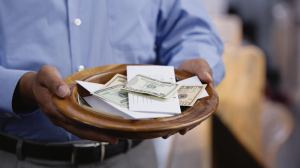
Group gatherings. Some groups forego them altogether. A group member in Albuquerque, New Mexico, recently approached me at the end of a workshop I led at the state’s annual evangelism conference. She lamented the fact that her teacher does not believe in group gatherings and their class has dwindled because of it. In his opinion, the teaching time should be enough.
Groups do need to be together. We are seeing this during the COVID-19 crisis. Churches and groups have scrambled to find ways to keep people connected online. The church has realized the power of fellowship and gathering as the church, even if it is digitally.
But the author of It Begins with Prayer challenges us to consider the problem with group gatherings in chapter 2. Exactly how could gathering together be a “problem”? Groups organize fellowships, like picnics. People bring food. Games are played. Friendly competition takes place. People enjoy their time together. But the author asks a haunting question: “…But have we done anything that really builds community?”
We might be tempted to say, “Well of course we built community!” But a shared experience doesn’t necessarily build community. Think of it this way. If you attend a sporting event in a stadium of some sort and watch a game with 20,000 others people, did you build community? What about the last airplane flight you took? You flew with 180 people, but did you really build community? Of course you had a shared experience, but did you leave the event knowing people more deeply? Did you really build community?
Do we settle for shared experiences as groups when we really need real community? That’s the question we must answer. Shared experiences are good and needed, for sure. But perhaps what is needed more is a way for people to experience a deeper level of community. In the next blog post, we’ll answer the question, “What is real community?”



